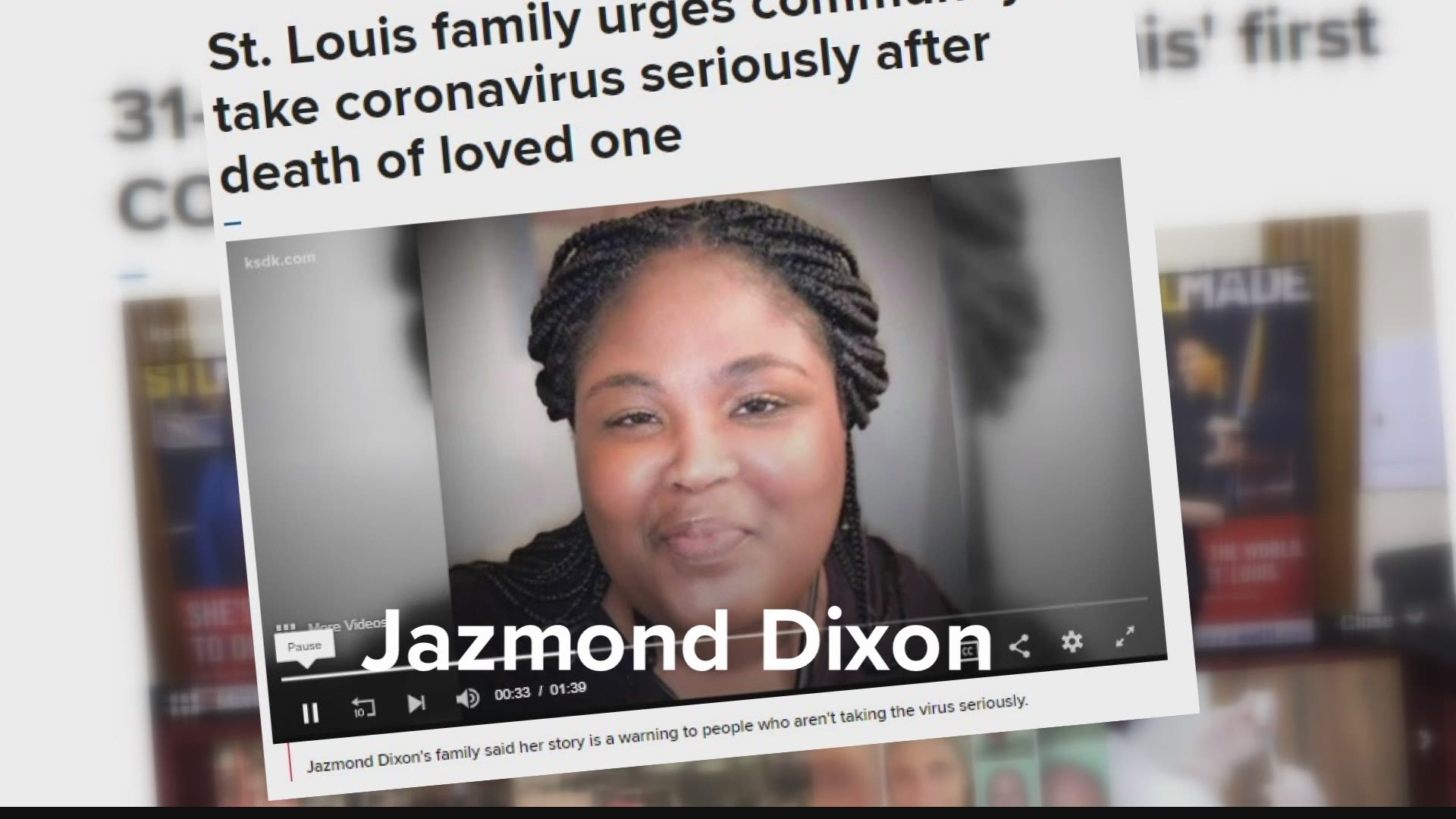ST. LOUIS — “We're just asking the community, the state, the country to put aside our petty differences and come together and support one another because this thing is real.”
Belafae Johnson stood outside the church he pastors in Mascoutah, Illinois, watching video playback of the first time he spoke with 5 On Your Side.
“Wow, wow,” he said. “A little bit more emotional than I thought I would be, you know, because you're just immediately transformed back to what was happening.”
What was happening when he took our first FaceTime call was the beginning of the pandemic. In March of 2020, headlines were overrun with “COVID-19.” Then, after March 22, the name “Jazmond Dixon” would also make news, as the first known COVID-19 related death in St. Louis.
“It really ... it really kind of knocked us off of our feet, you know,” said Johnson, Dixon’s older cousin. “To just read about this disease that was over in China ... not for it just to be here, but somebody you like grew up with to die from it? It really just messed up, to just be quite honest with you.
“When we have had a chance to gather as smaller groups, just her not being there is just extremely ... if I could use a word, like, it's just really weird,” he said.
After feeling sick with what she thought was the flu, Dixon went to the urgent care on a Wednesday. She wound up on a ventilator and was dead within days.
“Her funeral was essentially her body being picked up from the hospital,” he said. “We were completely robbed of any way of grieving in a normal sense.
You really don't feel like you had that closure.”
RELATED: COVID-19 in St. Louis: 1 year later
Johnson spoke then and now on behalf of their tight-knit family.
“We were grateful that we got the opportunity to talk about her being an educated woman, her being just a loving, kind person. And that was ... that was our Jazz,” he said. “She was just an incredible human being. She was extremely kind. She was funny.”
She worked at the Red Cross, had just gotten her master's degree, never missed a family celebration. As they say, she was full of life.
Since she had no known issues with her immune system and was much younger than the group thought particularly vulnerable, her story made international headlines for everything it proved we didn't know about the virus.
"There is no reason for a 31-year-old woman who just graduated with her master's degree to die four or five months later,” said Johnson.
When reason fails, the family turns to faith.
“One of her nurses unknowingly, not knowing that I was related to Jazmond…came up to me after service and was like, ‘Hey, this is crazy. I was one of Jazmond’s nurses.' And immediately I broke down and cried and I realized that I hadn't grieved,” he said.
“I'd be lying to you if I wouldn't have said that I was angry at times, if I was just hurt and broken at times. But there has been a peace that I've experienced because I do believe that the Lord is real and also that Jazmond was real and that there was a real relationship there.”
Even still, Johnson can’t help but wish his message of taking the pandemic seriously would have been heard more clearly.
“You always wish, like, man, I wish I could it impacted one more person or one more person could have heard this message, you know, what would the difference be? And so at times, I wrestle with that.”
Jazmond's death sent their family down what's now a beaten path: the journey of life after a COVID-19 loss. They’re still moving forward—carrying the weight of the last year, like so many of us, on their hearts.
“My encouragement to all of us is like when we can spend time with your family. Love, because tomorrow is -- if we see tomorrow, that's a gift.”

